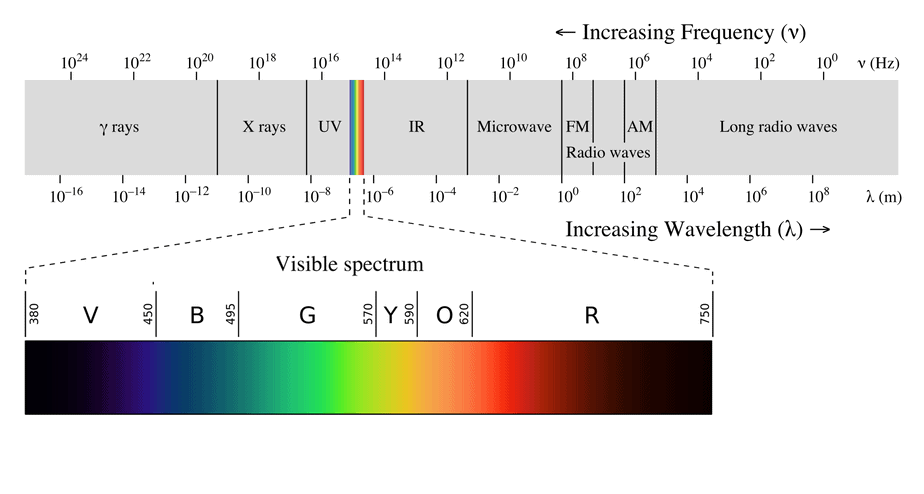Will engineers be replaced by robots? A resounding yes! Your level of creativity, however, determines when this robot takeover happens.
In the not-too-distant future, robots are projected to assume every job currently performed by humans – yes, even the revered engineering roles.
This prediction banks heavily on technology continuing its meteoric growth at its present rate. I understand there’s a chorus of dissenting voices. “Engineers are creative geniuses,” they argue. “They possess immeasurable intellectual capacities. They’re impervious to robotic incursions.” That’s the narrative we’re all familiar with, isn’t it?
Yet here’s a plot twist! The extent of your creativity as an engineer determines when a robot replaces you. It’s a daunting prospect, no doubt, but remember, we’re not talking about formidable, Terminator-like robots ousting you from your cubicle. The reality is much more insidious: sophisticated software and innovative hardware gradually phasing out engineers. A once buzzing office of 50 engineers might dwindle to a lean, exceptional team of 5.
Even visionary Elon Musk acknowledges this imminent reality:
“Robots will be able to do everything better than us… I am not sure exactly what to do about this. This is really the scariest problem to me.”
To better grasp this impending shift, we need to address the following questions:
- What type of work do engineers do?
- Which human activities can robots easily replace?
- Does technology always need human oversight?
- When will engineers start losing their jobs to robots?
What type of work do engineers do?

The range of engineering work is vast! Some professionals spend their days sizing screws, while others design sophisticated rockets.
It’s pretty obvious that the screw-sizing group will be the first in line for robot substitution. Advanced scanning technologies can easily and efficiently perform this task.
But where does that leave the top-tier design engineers? Their jobs might seem secure, but there’s a caveat.
I like to categorize design engineers into distinct groups. In the table below, I’ve projected the likelihood of robots replacing various types of design engineers in the next half-century. A score of ten implies high likelihood. Remember, this prediction is grounded in my personal experience as a design engineer.
| Engineering job types | Likelihood of replacement by robots in 50 years (10 is highest likelihood) | Skill set required for engineers to get position (10 is most difficult) |
|---|---|---|
| Reviewing & completing paperwork | 8 | 2 |
| Collecting and reviewing field information | 4 | 3 |
| Completing cookie cutter designs | 9 | 3 |
| Supporting cutting edge designs | 7 | 7 |
| Leading cutting edge designs | 1 | 10 |
| Third party design reviewer | 1 | 7 |
The pattern is clear: the higher an engineer’s creativity, the lower their chances of being replaced by robots. However, some less creative engineers might also survive the robot invasion, perhaps by excelling at sales or generating additional business on top of their daily tasks, thus enhancing their value.
In summary, jobs with low levels of creativity are at higher risk of automation, while innovative, trailblazing engineers are safer. This clearly illustrates that not all engineering roles require the same degree of creativity, and not all engineers are equally indispensable.
Which tasks are robots most likely to snatch up from humans?

Repetitive jobs are prime targets for automation. Programming a machine to loop through a set task is simple, and once set up, the job practically does itself.
But that’s not all! Computers are great at optimizing human workflows. Humans, by nature, are restricted by several limitations. For instance, we can only perceive a small portion of the visible light spectrum. In high-tech engineering, without machines, such limitations would significantly hinder our progress.
The benefits of automation make it easy to see why employers are eager to embrace robots. Machines surpass human capabilities in numerous ways, leading to reduced overhead costs, increased productivity, and soaring profits. Robots also negate human issues such as:
- Limited work hours (8 AM to 5 PM)
- Fatigue
- Inconsistent output
- Complaining and laziness
- Lawsuits
Consider the engineering jobs that are already nearly extinct:
- Product engineers: They used to provide product info to customers. Now, everything’s online, and you don’t need an engineer to guide you through a product.
- Hand drafters: Engineers once drew everything by hand. Today, advanced CAD software allows one engineer to accomplish what ten could before.
- Engineering analysis: Engineers used to crunch numbers manually. Now, sophisticated software does the heavy lifting. One engineer can complete an analysis that would have taken ten engineers months.
Does technology always need human oversight?
Imagine you instruct a machine to perform action X, expecting outcome Y. Instead, you get Z. Instances like this might convince you that humans are still needed to monitor machine behavior. You might even argue that this proves machines are inferior to humans.
But let’s flip the script. Instead of viewing this as a machine failure, we could see it as an opportunity to design better machines. So, when a machine performs action X, outcome Y always follows. No unexpected Z.
This is the trajectory of any first-generation technology. It starts off riddled with problems, attracting skeptics who predict its doom.
But with time and countless design tweaks, technology becomes nearly flawless. When you drive your car, you don’t anticipate a sudden loss of steering. When you fly in a plane, you don’t worry about crashing. This is all thanks to engineers who have tirelessly refined these technologies to near perfection.
So, why not apply this same logic to the tech-powered future? The answer: recency bias!
Recency bias with the future of technology
Our brains struggle to comprehend that the technology we rely on today was once dismissed as a joke. I’ve spoken with retired engineers who used to hand-draft designs before CAD took over. They never imagined computers would completely replace their work, citing several reasons why humans were superior to machines in drafting:
- Difficulty in drawing complex geometric shapes with dimensions
- Problems using different units in a single worksheet
- Challenges in differentiating various design components
- Issues integrating calculations into designs
Today, younger engineers can’t imagine working without CAD. More than increasing productivity, abandoning CAD would send engineering back to the Stone Age.
Sure, we’ve built impressive structures long before computers. But pushing engineering boundaries requires skills that we humans simply don’t possess.
Hand drafting isn’t the only casualty. Other once-popular engineering tasks are disappearing too. It might take half a century, but trust me, it’s happening.
When will engineers start losing their jobs to robots?

If you’re wondering when engineers will start losing their jobs to robots, I can tell you that it’s already happening, at least for lower-skilled engineering roles. Let’s talk about product engineers as an example.
In the past, you had to ring up a product engineer to get the lowdown on a product. Now, you can chill in your comfy PJs, surf the web, and get all the information you need. When the internet blasted off in the 90s, it marked the beginning of the end for product engineers. These folks, who once did repetitive work with little room for creativity, started to fade out.
But wait! Don’t count out all product engineers just yet! A select few are still around, and they’re not just your average Joes. They’re the geniuses who know the nitty-gritty about each item in their catalog and are consistently flexing their creative muscles.
I’ve seen this magic in action, having worked with some of these brainiac product engineers. They’ve been a massive help with product placements in my designs. They’ve gone through my work, pinpointed potential issues, and suggested improvements.
And that is their secret sauce!
These engineers went above and beyond the typical product engineer role. They dived into design and real-world projects, injecting creativity into their work. That’s something robots won’t be snatching up anytime soon, due to the countless variables and unique, custom work required.
Here’s some advice: strive to work like a machine to make yourself irreplaceable. And remember to flex your creative engineering muscles. Creativity is a muscle that needs a good workout every now and then.
“Will engineers be replaced by robots?” wrap up
Sure, engineering jobs may have a bit more padding compared to typical jobs, thanks to the creative component often involved.
But let’s be real, over time, engineering roles will start to feel the pressure from automation and AI. I’ve seen companies that are dead set on swapping monotonous engineering tasks for automated solutions. Their mission statement makes it crystal clear:
“Reduce the number of manual processes through automation, to allow engineers to focus on high-level tasks.”
So, all you engineers and future engineers out there, you need to stay ahead of the curve with top-tier skills. In other words, you need to keep leveling up by tackling unique, challenging projects.
Believe me, the last thing you want is to be stuck doing mind-numbing repetitive tasks all day. Your competition isn’t just other humans anymore. Machines and robots are quickly joining the race, and engineers can’t afford to ignore them.
What are your thoughts on robots taking over engineering jobs? Can you envision a day when robots replace all engineers?
